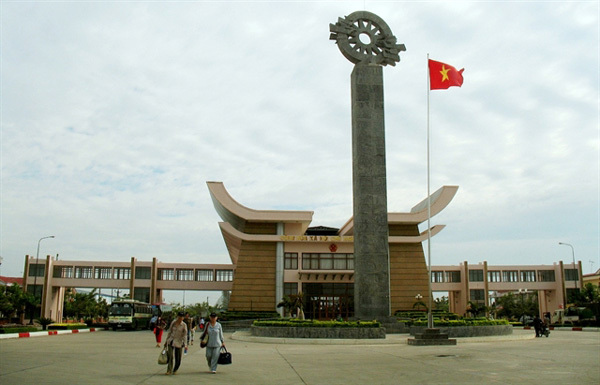 |
|
Many border gates with China are closed to prevent the spread of novel coronavirus. VNS Photo Van Chau
|
Chinese vegetables, tubers, fruits, and flowers account for 20-30 per cent of agricultural products sold at the Thu Duc wholesale market, but no containers have come from China in the past few days.
Some Chinese goods still sold could be from stockpiles and not from the border, Tran Thanh Phong, a market spokesperson, said.
The volume of agricultural goods reaching the market on February 7 was 3,503 tonnes, 335 tonnes down from the previous day. But prices have not been affected because many industrial and school kitchens are closed, Trinh Trung Kien, an administrative board member, said.
The situation is similar at other wholesale markets such as Hoc Mon.
Le Thanh Hien, a board member, said traders in the market are not worried about the absence of Chinese agricultural products as they could easily find alternative markets to source from like the US, South Korea, Chile, South Africa, and New Zealand.
The novel coronavirus (2019-nCoV) has spread to all China's 31 provinces, municipalities and autonomous regions and is effecting 28 countries and territories worldwide after being first detected in Wuhan City in December.
By 3:30pm on Tuesday (Hanoi time), there were 43,104 cases of infection globally and 1,018 deaths, in which 1,016 deaths in mainland China, one each in the Philippines and Hong Kong.
Vietnam has 15 confirmed cases. – VNS

China delays reopening of border markets: MoIT
Authorities in China’s Guangxi Province have decided to extend the closure of border markets and continue to suspend the trading of goods by individuals until the end of February.

How will the coronavirus affect Vietnam’s economy?
Bao Viet Securities (BVSC) predicted that the GDP would grow by 6.5 percent in Q1 2010, or 0.2-0.4 percent lower than the same period last year. The growth will recover in Q2.
 The suspension of trading through some border gates because of the novel coronavirus threat has meant Chinese vegetables and fruits are absent from HCM City's markets.
The suspension of trading through some border gates because of the novel coronavirus threat has meant Chinese vegetables and fruits are absent from HCM City's markets.